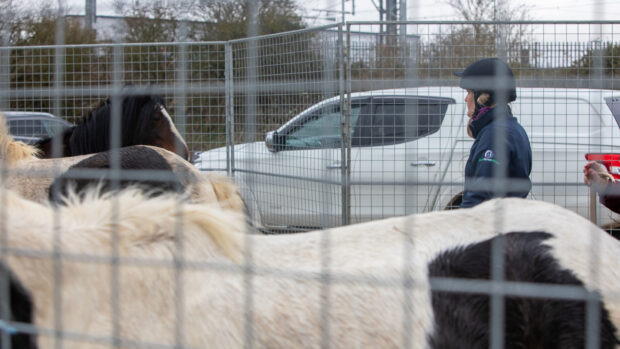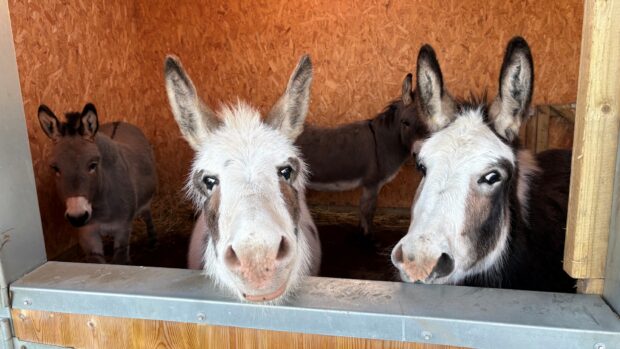Massive increases in equine obesity and laminitis over the past two years have prompted the International League for the Protection of Horses (ILPH) to launch a series of Right Weight Road Shows. The shows start next month and are designed to alert horse owners to the health risks associated with equine obesity.
Although the vast majority of the calls we receive concern underweight horses, there was a 100% increase from 2005-06 in calls from people concerned about overweight animals, said Samantha Lewis from the ILPH. We also had a 1,000% increase in reports of laminitis.
The first of the monthly road shows is on 9-10 June at the ILPHs Penny Farm in Blackpool. ILPH vets will explain why horses are getting fatter and how to determine the correct weight. Nutritionists will discuss dietary needs and offer take-home information and weightapes. 0wners can also have their horse weighed.
Overweight horses have a greater risk of developing heart, lung and joint problems, as well as laminitis and hyperlipemia.
The British Equine Veterinary Association (BEVA) backs the ILPHs work.
Obesity is becoming more of a problem and an under-recognised one, too, said BEVA president Professor Josh Slater. People tend to see a fat horse as a healthy horse.
Robert Eustace FRCVS, founder of the Laminitis Trust, believes the increase in laminitis cases reported is a result both of improved public awareness and bad management over the past 20 years. He also points a finger at show judges.
The type of horse considered suitable to win a show class today is in fact obese, he said. This ideal then filters down the line.
There is also growing belief that metabolic syndrome seen in humans also occurs in the equine population, said Prof Slater.
Some people have problems with fat regulation and the idea is that some of these fat ponies have the same problem but its not proven, he said, adding that owners of very fat ponies should seek veterinary input to any diet they impose.
For details on the road shows contact (tel: 01953 497217).
Visit: www.ilph.org
This news story was first published in Horse & Hound (31 May, ’07)



